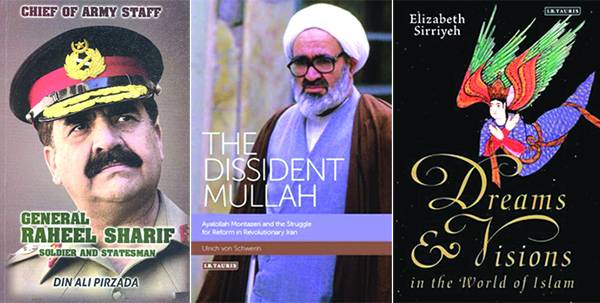
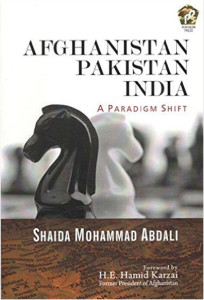
Afghanistan-Pakistan-India: A Paradigm Shift
Shaida Mohammad Abdali
Pentagon Press (hardcover), 2016
PRs 1,995
This book is an in-depth study conducted about Afghanistan, Pakistan and India, examining the past and the current (increasingly) deteriorating political, security and economic situation. Among various facts that unfold during the course of this work, what comes to light is that, at times, the out-dated and miscalculated policies of the governments, especially those of Pakistan, have played a major role in the current disharmonious situation; that the authorities seem to be oblivious of the great potential and common opportunities/challenges that exist, if only the above-mentioned countries join hands to work in rhythm and harmony towards achieving peace and prosperity rather than tearing each other, and themselves, apart. “To be ignorant of what occurred before you were born is to remain perpetually a child. For what is the worth of a human life unless it is woven into the life of our ancestors by the records of history?”(Marcus).
In the course of our long history that goes back thousands of years, our region has witnessed a great past, founded by the great sons and daughters of this land. Their all-knowing vision, philosophy and thinking are still, and will remain relevant for this and other generations to come. They have left behind a legacy of great culture, tradition and values. Philosophically, Sayed Jamalludin Afghani, Alama Iqbal and Swami Vivekananda are examples, among many, who have added immense knowledge and innovation to our world. Economically, the 3,000km-long Great Trunk Road (known as the GT Road) pioneered by an Afghan Emperor Sher Shah Suri in 16th century, which links India, Pakistan and Afghanistan, is a shining example of our wisdom and potential for collective prosperity. Therefore, as a guiding principle, we must strive towards reviving and retaining the glory, which was once a way of life for us all.
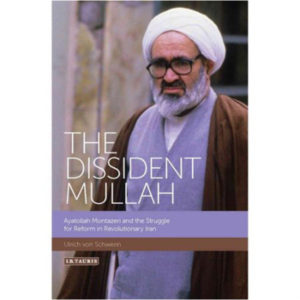
The Dissident Mullah: Ayatollah Montazeri and the Struggle for Reform in Revolutionary Iran
Ulrich von Schwerin
I B Tauris (hardcover), 2006
PRs 11,350
The Iranian cleric Ayatollah Montazeri (1922-2009) played an integral role in the founding of the Islamic Republic in the wake of the Iranian Revolution of 1978/9. Yet at the time of his death, Montazeri was considered one of the Islamic Republic’s fiercest critics. What made this man, who was once considered the leading advocate of the state doctrine of the ‘Guardianship of the Jurist’ (velayat-e faqih) and the designated successor to the supreme leader Ayatollah Khomeini, change his views? How did his political theory incorporate issues such as civil rights, pluralism and popular participation? And what influence did his ideas have on others? Ulrich von Schwerin’s book answers these questions by examining the evolution of Montazeri’s political thought over the course of five decades, and studies his role in the discourse on religion and politics in Iran. In doing so, he sheds a new light on some of the most crucial events and vital protagonists of recent Iranian history.
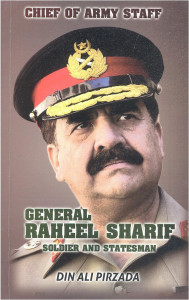
General Raheel Sharif: Soldier and Statesman
Din Ali Pirzada
Royal Book Company (paperback), 2016
PRs 1,250
This book is about the top military man of Pakistan. General Raheel Sharif, Chief of Army Staff, who has proved his mettle not only as an acknowledged General but a nationally and internationally renowned statesman also. In this book, the author has painstakingly portrayed a very authentic picture of the life and achievements of General Raheel Sharif, especially with reference to the exemplary success in Zarb-e-Azb, restoration of peace in Karachi, control of terrorism in Balochistan and above all the check on cross border terrorism in KPK, FATA and other parts of the country and balanced reply to the threats of aggression.
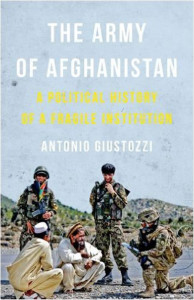
The Army of Afghanistan: A Political History of a Fragile Institution
Antonio Giustozzi
Hurst (hardcover), 2015
PRs 5,755
This book is the first full length political history of the Afghan Army, and as such is unparalleled in the range and depth of its analysis of this vitally important institution. Giustozzi locates the Army’s development within the wider context of state-building in Afghanistan. His volume includes a brief survey of the period to 1953, but focuses mainly on subsequent developments, over the last four decades, as the officer corps began to be politicised and later factionalised, especially during the Russian-backed regime of the Communist People’s Democratic Party of Afghanistan (PDPA), which ruled the country from 1978 to 1992. Despite the stress on the politics of praetorianism, the volume describes the Afghan Army’s performance on the battlefield in detail, highlighting the potential contradiction between military effectiveness and political loyalty to the ruling elite. The volume covers developments to the end of 2013 and is the result of extensive interviews conducted with both Afghan Army officers and their advisers and mentors.
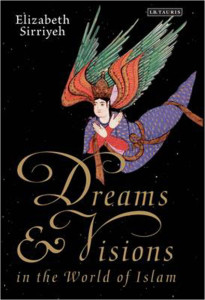
Dreams & Visions in the World of Islam
Elizabeth Sirriyeh
I B Tauris (hardcover), 2015
PRs 10,525
People in Western societies have long been interested in their dreams and what they mean. However, few non-Muslims in the West are likely to seek interpretation of those dreams to help them make life-changing decisions. In the Islamic world the situation is quite different. Dreaming and the import of visions are here of enormous significance, to the degree that many Muslims believe that in their dreams they are receiving divine guidance: for example, on whether or not to accept a marriage proposal, or a new job opportunity. In her authoritative new book, Elizabeth Sirriyeh offers the first concerted history of the rise of dream interpretation in Islamic culture, from medieval times to the present. Central to the book is the figure of the Prophet Muhammad - seen to represent for Muslims the perfect dreamer, visionary and interpreter of dreams. Less benignly, dreams have been exploited in the propaganda of Islamic militants in Afghanistan, and in apocalyptic visions relating to the 9/11 attacks. This timely volume gives an important, fascinating and overlooked subject the exploration it has long deserved.

